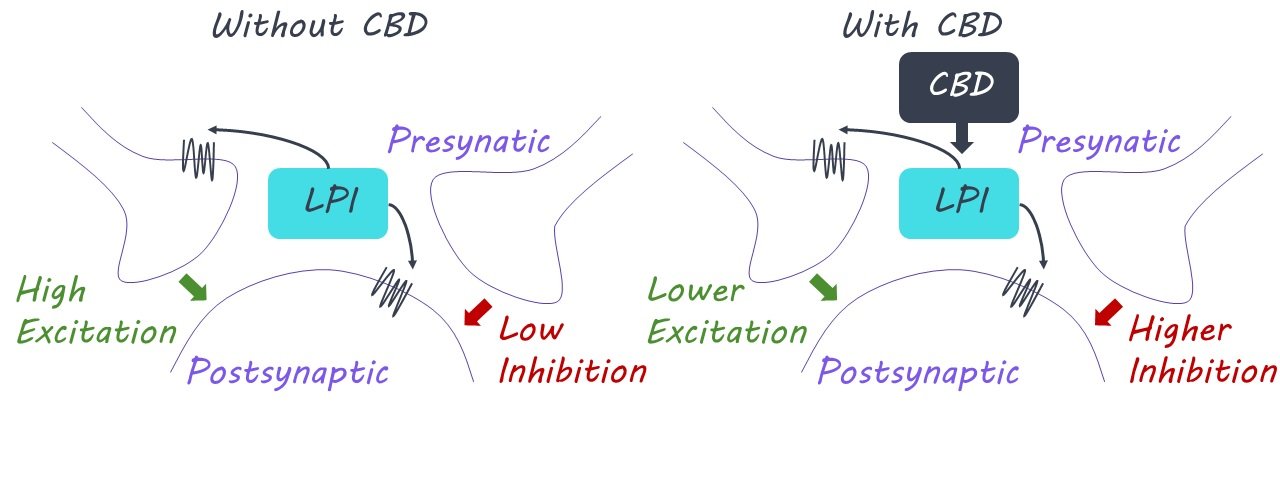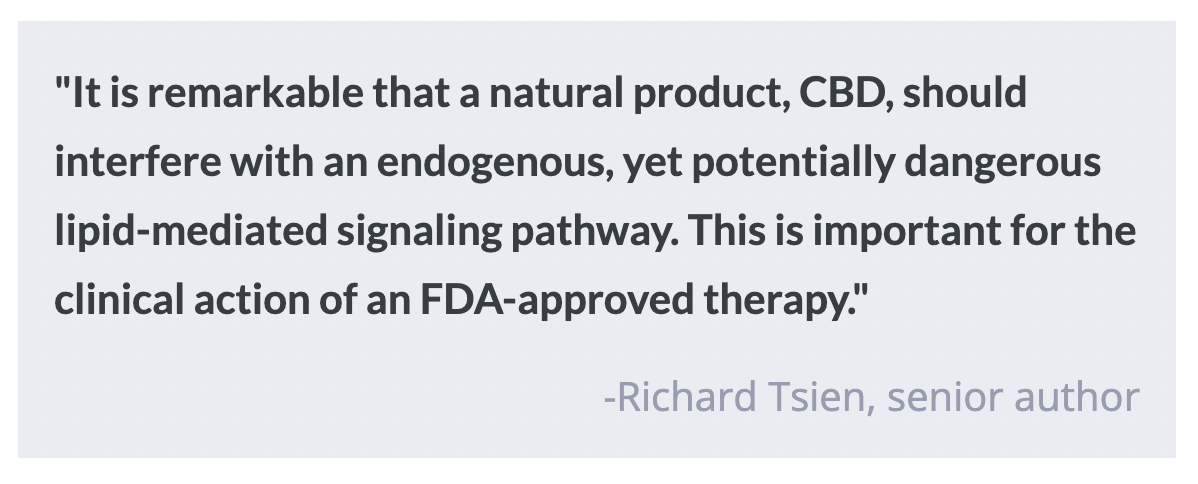CBD’s Anti-Seizure Mechanism of Action
Post by Baldomero B. Ramirez Cantu
The takeaway
Hippocampal hyperactivity is a hallmark of a variety of neurological diseases. Cannabidiol (CBD) is capable of modulating the excitatory-inhibitory balance of hippocampal neurons and its effects are mediated by interactions with the GPR55 receptor.
What's the science?
CBD is known to reduce seizure activity in animal models and patients with treatment-resistant epilepsies. However, the underlying mechanisms that enable CBD to reduce seizure activity and severity remain unknown. This week in Neuron, Rosenberg and colleagues investigate the role of the GPR55 receptor and its endogenous ligand LPI in CBD’s anti-seizure action.
How did they do it?
The authors tested if the GPR55 receptor is the site of action for CBD's anti-seizure effects by using mice with functional or genetically-removed GPR55 receptors. They conducted experiments on hippocampal neurons in-vitro to study how GPR55’s natural ligand, LPI, affects neuronal excitability and how CBD interacts with LPI’s effects. Finally, to investigate changes in GPR55 receptor expression after seizures in control or CBD pre-treatment conditions, the authors used qPCR and immunohistochemistry. Seizures were induced in the mice using the drug pentylenetetrazole or lithium-pilocarpine.
What did they find?
The authors found that seizures were only reduced by CBD if mice expressed GPR55 receptors - there was no improvement if these receptors were removed. This finding suggested a critical role of the GPR55 receptor in enabling CBD to attenuate seizures. They conducted neural recordings from the hippocampus and found that the application of LPI increased neuronal excitability in neurons from normal mice, but not in those from genetically modified mice lacking GPR55 receptors, indicating that LPI drives GPR55-dependent increases in neuronal excitation. LPI was found to disrupt neuronal activity in several ways, such as interfering with the impact of crucial inhibitory interneurons that are essential for maintaining an appropriate excitatory-inhibitory balance in the hippocampus. Importantly, hippocampal neural recordings showed that the presence of CBD counteracts the increased excitability produced by LPI. This provides evidence for the GPR55 receptor as a functional target of CBD’s anti-seizure action. Mice that received CBD pre-treatment showed significantly lower increases in GPR55 immunoreactivity and receptor mRNA expression after induced seizures compared to the control group.
What's the impact?
This is the first study to identify the two-pronged molecular signaling, affecting both excitation and inhibition, underlying CBD’s anti-seizure action. These findings could serve as the foundation for the development of new, targeted anti-epileptic therapies


